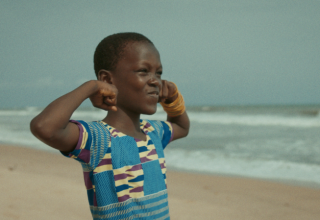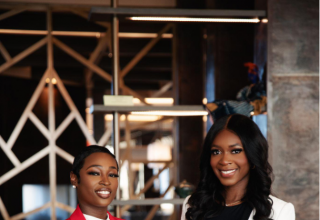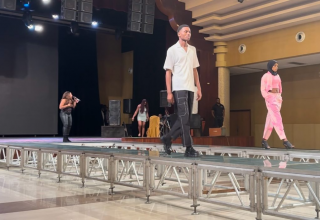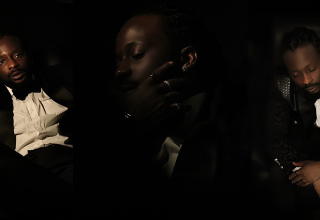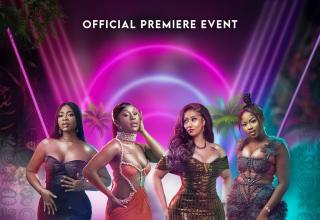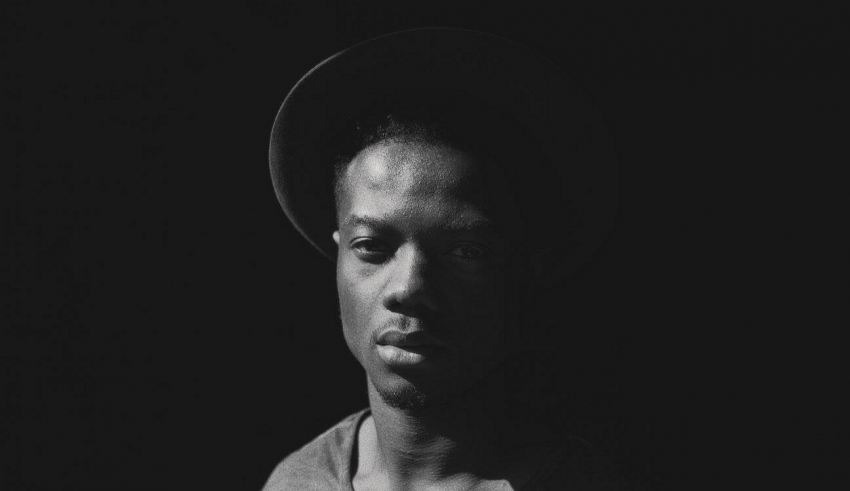
On the Academy Awards shortlisted films in the best short-live action category is ‘DA YIE’, an interesting and insightful work that joins the cords of innocence and fear. Prior to its Oscar buzz, the film had picked up several accolades on the international front including the Ghent International Film Festival’s Audience Award 2019 and the Princeton Independent Film Festival’s Grand Jury Award 2020.
Directed and co-written by Anthony Nti, a graduate of the Royal Institute of Theatre, Cinema and Sound in Brussels, ‘DA YIE’ has already made history locally by becoming the very first Ghanaian production to be mentioned on the Academy Awards shortlist of films. If everything goes as anticipated, Anthony and his team will arrive at the Oscars on April 26, as a first-time nominee.
Ahead of the Academy Awards nominees announcement scheduled for March 15, we had a Q&A session with Nti, to discuss the project’s impact and how Hollywood is no longer a far-fetched destination for African filmmakers.
How excited were you when the movie got shortlisted for the Academy Awards?
I was beyond excited. Seeing our film on their announcement made my heart skip a beat. I never thought this could be possible for this little film from Ghana. I immediately called my parents, who were sleeping. They couldn’t match my enthusiasm, having just woken up. I made a point of calling them again the day after. I’ve been working ever since, so I hope to properly celebrate soon.
Did you have any reservations about making the film?
This project was an idea co-writer Chingiz Karibekov and I had in 2015. We knew from the start we wanted to do it and we wanted to bring it all. We felt it was such a huge undertaking and, at first, we doubted whether we could get it done. We had not done anything this big with such a little budget before and it took us a long time to find the courage to start. But the desire to tell this story got the better of us.
Is the film in any way connected to your personal life story?
Yes, the film is intensely personal. It all started from a memory I had of my youth in Ghana, when I had come home late and my aunty wanted to strike me. I dodged her slap and she injured her hand. It’s a moment I remember clearly, because in Ghana, when you are being punished, you have to take the punishment, avoiding that means a whole nest of trouble. It became the start of my story. What do you do after that? I wanted to tie in themes of peer pressure and loss of innocence, as I felt deeply that this affected my youth as well. As a youngster, I have found myself in situations that, when looking back, could have turned sour for me.
How relevant is the story to the ordinary Ghanaian child, who inhabits such traits as Prince and Matilda on a normal day?
Da Yie is a story about peer pressure. Matilda and Prince were both a piece of that story. The innocence and beauty of their characters lie in the fact that they are not aware of the dangers they could be facing. They are trustful and funny and feel like that is a trait that makes these kids so endearing. I think every kid could recognize him or herself in these characters.
What informed you to cast new faces for the film?
It felt very natural to try and find new talent. I knew that Ghana is full of talented people. I just wanted the world to discover this as well. Luckily, I had help from the Humble Home Academy, an elementary school in Madina, that went above and beyond to accommodate this shoot. Without them, this film would not be possible. They guided us to find Matilda and Prince.
What’s the one element of surprise the audience will see when they watch DA YIE?
I wanted to express dread to the audience, through simple suggestion. I wanted people to experience the fear of not knowing where this journey could lead to. Because that’s what life is like. You won’t know how things turn out and once you make the wrong choice, you have to ride it out.
How much influence did your diaspora orientation play in the making of DA YIE?
Just like the ‘Bogah’ in the story, in a way, I am also a foreigner. As a kid in Ghana, I remember the fascination we had for the people who had gone to the West. We felt a certain attraction to them, that is hard to describe if you’re not from Ghana. This alone was enough to convince the children to join the Bogah on his journey and it’s something I completely understand.
How different is DA YIE from your previous screen projects?
Da Yie is the first project that I did, in which I wanted to put elements of thriller. I wanted to make it an exciting film, without being too on the nose. It wasn’t an easy task to tell this story, with the main tension that we had in mind. It really took a long time to figure out.
What’s the one take away you expect the audience to have after watching DA YIE?
I want the audience to be aware of how the innocence of children can come in danger when confronted with the adult world. But it was also important for me as a filmmaker to create a cinematic experience despite the heavy thematics. It’s not a film to point fingers or to scare. It’s also important to not see things as black and white, but to be open to different perspectives too.
Are there any future projects coming from your camp?
At the moment I’m working on my first feature, ‘Postcard’, together with the co-writer and co-producer of Da Yie, Chingiz Karibekov. It’s inspired by the book ‘On Black Sisters Street’ by Chika Unigwe. We developed it at the Sam Spiegel Filmlab where it won the second prize. I’m also working on a TV show called, ‘Clemenceau’, with Chingiz Karibekov & Mohammed El Hajjouti, which we developed at Torino SeriesLab and which is featured on Series Mania. I hope to continue working on projects that can reach a global audience. I feel like now more than ever, we need stories that can connect audiences to places and people they wouldn’t otherwise get to know. That’s the kind of cinema that inspires me and the kind of cinema I want to make.
Do you think Hollywood is a far-fetched destination for African filmmakers?
If you see how Da Yie traveled the world and was understood by people from LA to Tokyo, I feel that it’s not far-fetched as every little story can be universal; that’s also what I look for in my stories as a filmmaker. I also think we should try and connect and share our knowledge and artistry to stand stronger. There are a lot of stories that need to be told. Cinema is a universal language and I feel like we need to use it. We need to make our voices heard. Don’t be afraid to speak up.
What’s your take on the Ghana Movie Industry as a whole?
Ghanaian cinema is very close to Nollywood, but there are really interesting Ghanaian directors like Blitz The Ambassador, Akosua Adoma Owusu, who are more artistic filmmakers. I think Africa has always had a cinematic voice, if you look at Djibril Diop & Ousmane Sembene for instance. They all had a very interesting voice, which inspires me a lot in terms of storytelling and visual approach. They deserve more attention. There are also new voices like Ben Asamoah and Will Niava, who are doing amazing things. Like with theatre, music, art and literature, I hope more and more people will get to understand and appreciate our cinema.


